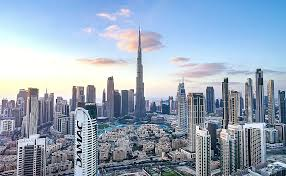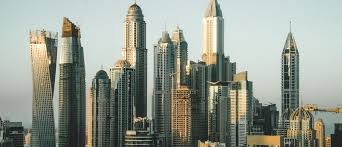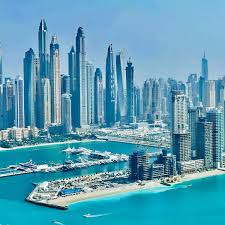Now Reading: “How Dubai Became the Smartest City: Lessons for Growing Nations 2025”
-
01
“How Dubai Became the Smartest City: Lessons for Growing Nations 2025”
“How Dubai Became the Smartest City: Lessons for Growing Nations 2025”

Table of Contents
Dubai is not just famous for its tall skyscrapers and luxury lifestyle; it is also becoming one of the smartest cities in the world. With its ambitious goals and quick progress in digital technology, Dubai is setting an example that many emerging markets can learn from.
In this article, we explore how Dubai is building its smart city, what technologies are driving this change, and what lessons developing countries can adopt to create their own future-ready cities.
What Makes Dubai a Smart City?

Dubai’s journey towards becoming a smart city started in 2013 when the government launched the “Smart Dubai” initiative. The plan aimed to make Dubai the happiest and most connected city on Earth using technology, data, and innovation.
Some major pillars of Dubai’s smart city vision include:
- Smart Governance:
Dubai uses artificial intelligence (AI), blockchain, and digital services to make government operations faster, transparent, and more citizen-friendly. For example, the city aims to move all government services online to reduce paperwork and waiting times. - Smart Economy:
Dubai promotes digital businesses, start-ups, and e-commerce through incentives, tax benefits, and innovation hubs like Dubai Internet City and Dubai Silicon Oasis. - Smart Mobility:
The city invests heavily in electric vehicles, autonomous cars, and smart public transport systems. The famous Dubai Metro is fully automated, and plans for flying taxis are already in progress. - Smart Environment:
Sustainable energy, smart water systems, and green buildings are a key focus. The government plans to reduce energy consumption by 30% by 2030 through smart grid technology. - Smart Living:
Residents enjoy free public Wi-Fi, digital health services, smart homes, and even police robots that patrol tourist areas.
What Emerging Markets Can Learn from Dubai

While Dubai has the advantage of wealth and strong leadership, many of its smart city strategies can be adapted by developing countries as well. Here are five important lessons for emerging markets:
1. Government Vision is Key
A smart city cannot be built without a clear plan. Dubai’s leaders set a bold vision for the future and ensured all government departments worked together. Similarly, emerging markets should create a long-term roadmap for smart urban development, supported by political will.
2. Digital Infrastructure Comes First
Dubai invested early in 5G networks, fiber optics, and Internet of Things (IoT) platforms. Without such digital infrastructure, smart technologies like traffic management, e-payments, and e-health cannot function. Developing nations must prioritize affordable, widespread digital connectivity.
3. Start Small, Scale Fast
Dubai did not attempt everything at once. It started with pilot projects like smart parking and e-government services, then expanded to more complex solutions like autonomous transport. Emerging markets can test small projects in limited areas before expanding them citywide.
4. Public-Private Partnerships Work Wonders
Much of Dubai’s smart city success comes from involving private tech companies, startups, and investors. From IBM to Huawei, global firms partnered with the government to provide technology and expertise. Developing countries can attract private investment through tax breaks and innovation zones.
5. Citizens Must Be Engaged
Technology is useless if people do not use it. Dubai promotes public education on digital services and even gamifies participation through reward programs like “Dubai Now.” Emerging markets must ensure smart solutions are easy, affordable, and accessible for all citizens.
Challenges to Consider
It’s important to note that while Dubai offers a great model, emerging markets face unique challenges. Budget limits, lack of technical talent, political instability, and rural populations make it hard to copy Dubai exactly.
However, the core ideas—planning, digital infrastructure, partnerships, and public participation—remain useful everywhere. Smart cities do not require the world’s tallest buildings; they need smart thinking and local innovation.
Successful Examples Inspired by Dubai
Some cities in emerging markets are already following Dubai’s path:
- Bangalore, India: Known as the “Silicon Valley of India,” Bangalore is working on smart traffic systems, e-governance platforms, and clean energy.
- Nairobi, Kenya: The city is using mobile money and smart agriculture to connect farmers and traders digitally.
- Jakarta, Indonesia: Jakarta has developed “Qlue,” a citizen-reporting app for municipal services like waste and pothole management.
These examples show that even with lower budgets, cities can adopt smart technologies to solve urban problems.
Conclusion: The Future Is Smart
Dubai’s smart city journey shows that digital technology, when used wisely, can solve urban challenges, create jobs, improve services, and make life better for everyone. For emerging markets, the key takeaway is that smart cities are not about luxury—they are about efficiency, inclusion, and sustainability.
By planning carefully, building digital infrastructure, partnering with private firms, and focusing on citizen needs, developing countries can also build their own version of a smart city—tailored to their people, budget, and culture.
Dubai has lit the path. It’s time for other cities to follow in their own smart way.
Read More:- Shobha Realty Launches Its Most Luxurious Project Yet—Full Details Inside 2025



















